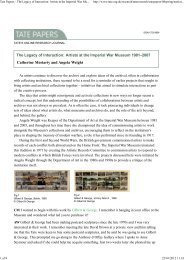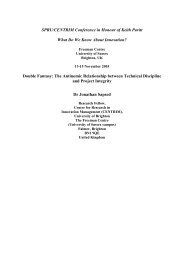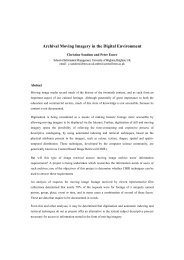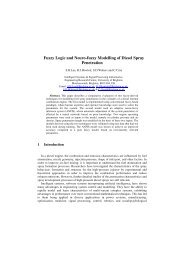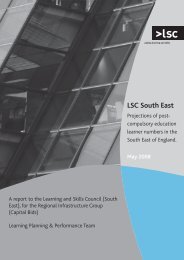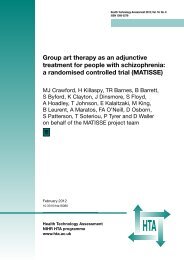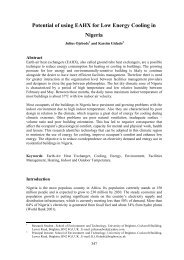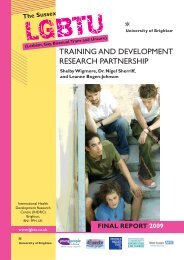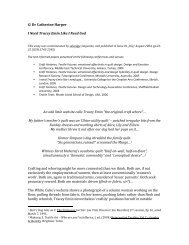TOP TIP - University of Brighton Repository
TOP TIP - University of Brighton Repository
TOP TIP - University of Brighton Repository
Create successful ePaper yourself
Turn your PDF publications into a flip-book with our unique Google optimized e-Paper software.
Bringing younger and<br />
older fathers together<br />
One issue that arose when talking<br />
to a few projects and agencies<br />
about approaches to delivering<br />
young fathers work (particularly those<br />
using elements <strong>of</strong> group working), was<br />
whether fathers work should be agerelated<br />
or differentiated in order to be<br />
most effective. In other words, can<br />
young fathers and older young fathers<br />
(say in their mid 20s and older) benefit<br />
mutually from participating together?<br />
If so, what issues does this raise for<br />
each age group?<br />
Although we cannot resolve such<br />
questions here, it is useful to think<br />
about the implications they may have<br />
for young fathers work. As might be<br />
expected, the findings from our<br />
research are mixed. Some practitioners<br />
we spoke to suggested that although<br />
younger and older fathers may have<br />
diverse support needs, group work<br />
that mixes ages can work as each agegroup<br />
supports the other in different<br />
ways. For example, DVD in<br />
Rotherham found that ‘being a dad’<br />
was enough to allow the group to<br />
work successfully together:<br />
‘You might be 17,18 and have three or<br />
four kids. You might get a dad that’s at<br />
30 who is on his first. So, this 17 year<br />
old lad will support that older person<br />
becoming a dad, and the older dad can<br />
support that individual about life<br />
experiences… I don’t think they really<br />
saw age as an issue - they looked at<br />
coming together because they’ve got a<br />
common goal - they’re all dads. They’ve<br />
all got different circumstances, but<br />
they’re all dads.’<br />
However, the most common view from<br />
our research (and others) seems to<br />
suggest that for the youngest fathers,<br />
some form <strong>of</strong> age-differentiated<br />
approach may be most suitable. For<br />
instance, the TPSS in Hull said that in<br />
their view, the needs <strong>of</strong> the very<br />
PROMISING PRACTICE<br />
‘We quickly<br />
realised that<br />
because<br />
young fathers<br />
as a group are<br />
so diverse -<br />
they can be so<br />
young, they<br />
can be 14 and<br />
like a rabbit in<br />
headlights -<br />
really, really<br />
scared. Or<br />
they can be<br />
over 20. You<br />
can’t mix the<br />
two together,<br />
they have such<br />
different<br />
needs.’<br />
Supporting Young Fathers 37



